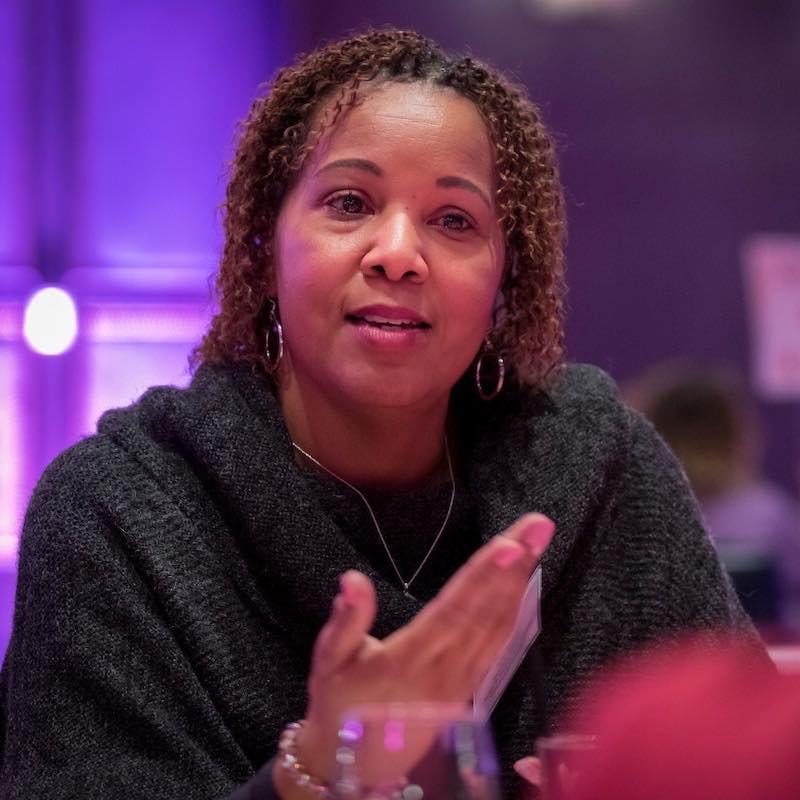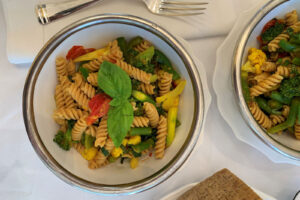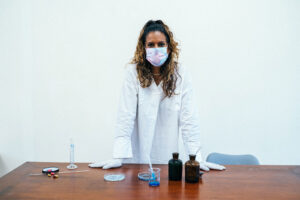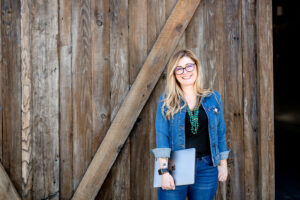Nearly 14 years ago, Erika Wimms discovered the 3 millimeter-sized protrusion on her chest that would end up redefining her role as an educator forever.
Wimms has been a teacher in the Philadelphia area for 27 years, and that specific morning began like any other. It wasn’t until Wimms, 35 at the time, felt a sharp pain in her right breast while walking down the school hallway that things took an unexpected turn.

The next two weeks were a whirlwind of a triple negative breast cancer diagnosis, mammograms, biopsies and surgery.
“I had no time to process it at all, other than telling my job I was having surgery and navigating the logistics with two young children,” Wimms says. Her husband had just started a new job that limited his ability to take time off. Fortunately, Wimms’ parents and sister lived nearby and quickly stepped up while members of the school community dropped off meals and gave handmade cards and gift cards to the family.
Wimms’ surgery removed what appeared to be all of the cancer but because she was in her mid-30s, her oncologist recommended four months of chemotherapy and 30 rounds of radiation for prevention purposes.
Eventually, about a year later, Wimms was officially able to begin her cancer-free life and return to teaching. In her free time, she fundraised and participated in Susan G. Komen Philadelphia’s Race for the Cure but started feeling like there was more she wanted to do in the breast cancer community.
According to the CDC, Black women and white women get cancer at about the same rate, but Black women die from it at a higher rate.
That seed was first planted in 2007 when Wimms attended her first Race for the Cure event in Philadelphia, shortly after her treatment had ended. “I remember looking around and thinking how few Black women I saw participating,” she says. “That stayed on my mind.”
According to the CDC, Black women and white women get cancer at about the same rate, but Black women die from it at a higher rate. Five years ago, Wimms finally felt ready to share her story to increase early cancer awareness in Black communities.
“As an educator, I teach little ones all the time,” says Wimms. “I figured I could teach big ones too.” She says it comes across differently when Black women see someone who looks like them spreading awareness. Whenever she has a day off from teaching second grade, Wimms volunteers through Komen Philadelphia’s outreach programs and makes a point to attend events in the predominantly Black communities and areas of Philadelphia whose residents make up 44 percent of the city’s total population.
With the COVID-19 virus, Breast Cancer Awareness Month may look different this October when it comes to in-person events. Impacts can still be made, though. For those who are able, Wimms encourages donations to Komen Philadelphia, specifically its new Patient Assistance Program that provides men and women in breast cancer treatment with $500 annually for everyday costs like groceries and transportation.
Wimms believes this program is crucial to Black women by showing how Komen can offer various types of financial support – a key focus in her own activism and advocacy. “I try to make sure that women, and Black women especially, understand that organizations like Komen have funds for people like them,” she says. “I think, as Black women, we take charge of things and care for everybody else and put ourselves last. We have to make ourselves a priority and accept help when we really need it.”
Contact Erika Wimms for engagement and speaking inquiries: nomorebc@yahoo.com. Anyone wishing to donate to help ensure adequate funds in Komen Philadelphia’s Patient Assistance Program can do so at KomenPhiladelphia.org/donate.







